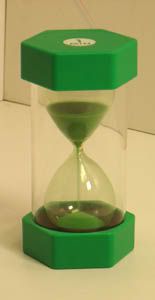It only took me about 7 years but finally I decided that I couldn't run like this any more. Especially when I discovered my group had grown from 4-5 people to 7-8. Which was untenable. More people meant more to think about and, yup, more paper to wrestle with.
 |
| These things saved my life. (Possibly an exaggeration) |
I recalled a pair of articles on gnomestew.com that dealt with using index cards. Previously I'd skimmed them but mostly dismissed them as a gimmick. They've proven to be real game changers (literally), however. I'm writing more consise, better thought out, notes. I'm having less paper to juggle with. In short, I'm more organised and running a better game because of it.
Having nice colour coded notes (red for combat encounters, purple for skill challenges, blue for places etc) helps too. I quickly stopped numbering the cards though - anything that avoids me taking the players down a linear path is a good idea, in my opinion.
Where I differ from the gnomes, however, is that I don't keep my cards. (well, aside from the ones scattered around my room. I'm never going to be that tidy!) Instead I use Obsidian Portal to keep my game notes. This combined approach has worked really well - my notes at the table are easy to access and I have (via my iPhone) an encyclopaedia of campaign notes at my fingertips at all times.
My revelation about index cards caused my to look closer at other game 'gimmicks' that I'd previously dismissed. Especially as my group is now rather large. Taking cue from the 4th ed Dungeon Masters Guide, I now have one of my players (who is, of course, rewarded with a drama card!) keep track of iniative on a white board that everyone can see. One less job for me and having everyone know when their turn is coming up has helped make everything a little quicker.
The final gimmick I introduced serves a dual purpose! When you have a large group it's hard to stop people talking over eachother. Players tend to carry on conversations whilst waiting for their turn to come up - and in 4th ed that can take a little while.
That meant I had two problems to solve, both with solutions I'd heard many times before (but, again, dismissed). To solve the problem of players talking over eachother, a conch was needed and to solve the problem of turns taking a long time, I needed a little hourglass to help people along in taking less time.
So why not combine the two? I ordered a nice, big, green sandtimer from ebay. Big enough to be clearly symbolic and useful to keep track of time. Also it was nice and sturdy to stop certain players destroying it. Because they would.
 |
| Just because something is a gimmick doesn't mean it should be dismissed. |
There's a lot of advice out there for GMs. Previously I just stuck to the 'game theory'. I'm glad I've opened my mind a little - the game is definitely better for it.
Next - something with sails.
No comments:
Post a Comment